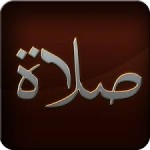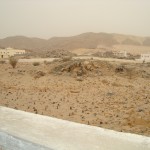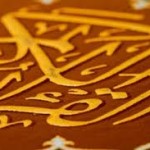What to do when in the state of ritual impurity/janābah
QUESTION:
What are the Fara’idh of Ghusl?
ANSWER:
In the Name of Allah, the Most Gracious, the Most Merciful.
As-salāmu ‘alaykum wa-rahmatullāhi wa-barakātuh.
Ghusl is the procedure which a person undertakes to clean their body from ritual impurity i.e. from the state of janābah. If a person does not do Ghusl properly, he will not leave this impure state, and any acts of worship which require a condition of cleanliness will not be valid.
In principle, there is one key obligatory act (rukn/fardh) when having a compulsory ritual bath, which is to encompass washing the entire body once, such that not even a single-hair space is left unwashed. This applies to all places where it is possible for the water to reach without undue difficulty, including one’s hair etc. [1] This includes the:
- Mouth ~ One should ensure that he/she rinses the mouth fully as this will suffice. Gargling is not necessary in Ghusl. [2]
- Nostrils ~ One should pass water through the nostrils until the tip of the bone. [3]
And Allah Ta’āla Knows Best
Mubasshir Ahmed
Concurred by: Hanif Yusuf
References
[1]
(وأما) ركنه فهو إسالة الماء على جميع ما يمكن إسالته عليه من البدن من غير حرج مرة واحدة حتى لو بقيت لمعة لم يصبها الماء لم يجز الغسل، وإن كانت يسيرة لقوله تعالى ﴿وإن كنتم جنبا فاطهروا﴾ [المائدة ٦]، أي: طهروا أبدانكم، واسم البدن يقع على الظاهر، والباطن فيجب تطهير ما يمكن تطهيره منه بلا حرج، ولهذا وجبت المضمضة، والاستنشاق في الغسل، لأن إيصال الماء إلى داخل الفم، والأنف ممكن بلا حرج، ويجب إيصال الماء إلى أثناء اللحية كما يجب إلى أصولها
[Badā’i al-Sanā’i li al-Kāsānī: 1/267: Dār al-Kutub al-'Ilmiyyah]
فرض الغسل: المضمضة، والاستنشاق، وغسل جميع البدن. وفي الغسل مأمور بتطهير جميع البدن. قال الله تعالى: ﴿وإن كنتم جنبا فاطهروا﴾ [المائدة ٦] فيجب غسل جميع ما يمكن غسله من البدن
[al-Ikhtiyār li al-Mawsilī: 1/56: al-Risālah]
(قوله: وفرض الغسل غسل فمه وأنفه وبدنه) وأما ركنه فهو إسالة الماء على جميع ما يمكن إسالته عليه من البدن من غير حرج مرة واحدة حتى لو بقيت لمعة لم يصبها الماء لم يجز الغسل، وإن كانت يسيرة. ولهذا وجبت المضمضة والاستنشاق في الغسل؛ لأنه لا حرج في غسلهما. وأما قوله - ﷺ - «عشر من الفطرة» وذكر منها المضمضة والاستنشاق لا يعارضه إذ كونهما من الفطرة لا ينفي الوجوب؛ لأنها الدين
[al-Bahr al-Rā’iq li ibn Nujaym: 1/86: Dār al-Kutub al-'Ilmiyyah]
والفرض فيه أن يغسل جميع بدنه ويتمضمض ويستنشق، والمضمضة والاستنشاق فرضان في الغسل، نفلان في الوضوء، والأصل فيه قوله عليه السلام: تحت كل شعرة جنابة فبلوا الشعرة والبشرة، وفي الأنف شعر وفي الفم بشرة
[Muhīt al-Burhānī li ibn Māzah: 1/225: Idāratul Qur’ān]
[2]
قوله: (غسل الفم والأنف) أي بدون مبالغة فيهما فإنها سنة فيه على المعتمد
[Hāshiyah al-Tahtāwī: 1/120: Dār al-Kutub al-'Ilmiyyah]
ولو شرب الماء عبا أجزأه عن المضمضة لا مصا
[al-Bahr al-Rā’iq: 1/86: Dār al-Kutub al-'Ilmiyyah]
أي طرح الماء من الفم ليس بشرط للمضمضة
[Radd al-Muhtār: 1/152: Dār al-Fikr]
غرارہ کرنا غسل میں معتمد قول پر واجب نہیں
[Fatāwa Mahmūdiyyah: 5/78: Jāmi'ah Fārūqiyyah
[3]
(وأنفه) حتى ما تحت الدرن قال الحصكفي:
قوله: حتى ما تحت الدرن) قال في الفتح: والدرن اليابس في الأنف كالخبز الممضوغ والعجين يمنع)
[Radd al-Muhtār: 1/152: Dār al-Fikr]
ناک میں پانی دینا غسل جنابت میں فرض ہے، بغیر اس کے غسل نہیں ہوگا۔
[Fatāwā Mahmūdiyyah: 5/79: Jāmi'ah Fārūqiyyah]
DISCLAIMER:
The Ask Our Imam site hopes to respond to queries relating to Islamic law. It is not an Islamic Law Shari`ah Court. The questions and answers found on this website are for educational purposes. However, many of the rulings rendered here are distinct to the specific scenario and thus should be read in conjunction with the question and not taken as a basis to establish a verdict in another situation or environment. This site bears no responsibility in these responses being used out of their intended context, nor to any party who may or may not follow the responses given and is being hereby exempted from loss or damage howsoever caused. None of the responses rendered may be used as evidence in any Court of Law without prior written consent of Our Imam. Any reference to another website or link provided in our responses or article should not be taken as an endorsement of all the content on that website; in fact, it is restricted to the particular material being cited.
Posted in Tahaarah (Cleanliness)Daily Matters on 14th Dec 2021 by Our Imam | 352 Views





